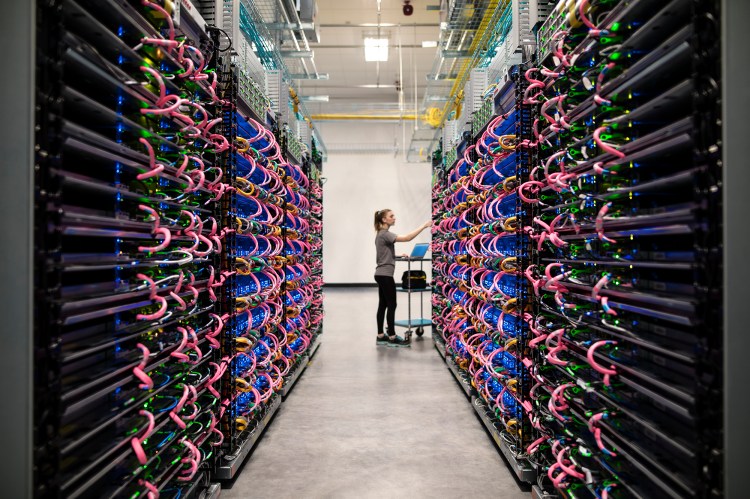Want smarter insights in your inbox? Sign up for our weekly newsletters to get only what matters to enterprise AI, data, and security leaders. Subscribe Now
Google CEO Sundar Pichai today announced it will release a third generation of its tensor processing unit that will be eight times faster than tensor processing unit (TPU) chips released last year to help AI practitioners make larger, more accurate AI models.
“These chips are so powerful that for the first time we’ve had to introduce liquid cooling in our data centers,” Pichai said.
The news was announced onstage at I/O, Google’s annual developer conference being held Tuesday to Thursday, May 8-10, at the Shoreline Amphitheater in Mountain View, California.
Pichai began to refer to Google as an AI-first company at I/O last year, but artificial intelligence has been part of things at Google for some time now.
AI Scaling Hits Its Limits
Power caps, rising token costs, and inference delays are reshaping enterprise AI. Join our exclusive salon to discover how top teams are:
- Turning energy into a strategic advantage
- Architecting efficient inference for real throughput gains
- Unlocking competitive ROI with sustainable AI systems
Secure your spot to stay ahead: https://bit.ly/4mwGngO
First conceived at Google in 2013, TPUs, specialized chips for the inference of AI data, have been in use internally at Google since 2015 to power things like Google Photos, Google search results, or Google Cloud Vision API calls.
TPUs were first publicly acknowledged by Google in 2016. Second-generation TPUs for cloud computing were introduced at I/O one year ago.
ML Kit was also introduced today to make it easy for Android and iOS developers to bring AI services into their apps.


